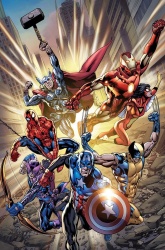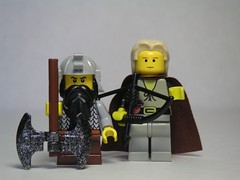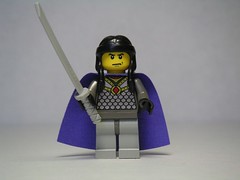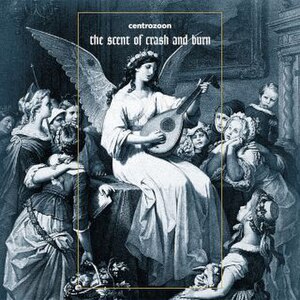 |
| Bummer (Photo credit: Wikipedia) |
This blog is meant to be used as an example for first-year composition students. Rhonda is a fictional community college student who will perpetually be taking the two-course sequence. This is her online writing and research journal (her 2012 research entries run from 1/20-5/5/2012; Eng101 reading journal that year runs from 8/22-12/5/12). For an explanation of the course, see below for Rethinking Teaching the Research Paper.
Showing posts with label research papers. Show all posts
Showing posts with label research papers. Show all posts
Saturday, April 30, 2016
Hindsight is a Bummer
Tuesday, April 19, 2016
Did you ever have one of those days?
 |
| Doc, age 3. He's very suspicious of cameras |
It's hard to keep on track with all my courses when stuff like that is happening. Yesterday in class, the prof had us write 5 blog posts in class (we're in a computer lab), and I'm having trouble accessing the file. I feel like an idiot now. I didn't post them from the lab because I wanted to do it on my own computer so that I could run Zemanta for pictures and article suggestions.
The one piece of good news is that the due date on the research paper has been pushed back to next Monday instead of tomorrow. Or maybe it's not good news, since that just gives me more time to worry about it.
Related articles
- 8 Surprising Health Perks of Citrus Peel (liveinthenow.com) I don't know why Zemanta suggested this, but it's really interesting.
Tuesday, April 12, 2016
Writing about War is Hell
 |
| The "Heroic Age" roster of the Avengers. Cover art for Avengers vol. 4, #12.1, by Bryan Hitch. (Photo credit: Wikipedia) |
I had a scheduled conference yesterday with the prof to talk about how she wants me to revise my research paper draft. She gave me some ideas about how to fix the wording of my thesis, and told me to quote both my sources and the film a lot more. Luckily, she thought the scenes I chose from AAoU (I'm kind of tired of typing out Avengers: Age of Ultron. Hey, I just did it again) worked, so I don't have to start anything over. It's going to be a lot of work.
Related articles
Friday, April 8, 2016
I've Got a Thesis!
 |
| Regions of the brain affected by PTSD and stress. (Photo credit: Wikipedia) |
The irony here is that the most important long-term benefit of a warrior code is that it helps prevent the worst effects of PTSD--if he would accept the same values that the others do, he would be able to find support in being part of the group and probably suffer a lot less.
Related articles
- Colorado veterans sue for access to medical marijuana to treat PTSD (kdvr.com)
- American Heart Association says Post-Traumatic Stress Disorder may affect Blood Vessel Health in Veterans (clarksvilleonline.com)
- One Marine mom wrote a beautiful letter to her three kids, and in it, she shares some untold secrets (rare.us)
- BIRMINGHAM: These hero dogs are in need of a home; here's how you can help (yellowhammernews.com)
Monday, October 20, 2014
It's a Conspiracy!
As a result of a lot of family issues, I've been letting this go for a couple of weeks (my aunt is better, maybe, and my uncle is not-- they decided his heart wasn't in good enough shape for spinal surgery), but I've been keeping up with the work otherwise. My annotated bibliography looked good to me; I just hope that it looks good when it's graded. I finished revising my review of scholarly literature on the political thriller genre (just in time: it's due today), so here I am to talk about what I've found.
It seems that the crucial element that defines the genre is the presence of a conspiracy. This is what puts Divergent into the same category as The Manchurian Candidate and Enemy of the State. What makes it less obvious to a casual viewer is the presence of kids. In those films, a single innocent person somehow stumbles upon a conspiracy to overthrow an elected leadership and has to survive numerous attacks while trying to take the whole thing apart. It's probably needless to point out that this innocent person is usually an adult (and male).
And, I just thought of another difference, but I'll save that for my next post.
Wednesday, February 19, 2014
A Secret Humiliation
 |
| Don't Look at Me! |
The prompt asks me what I have found in a scene from my film using the critical model, and I just didn't have time to re-watch the film then. Things are better now, so here goes.
Looking at The Four Feathers from a shame point of view is amazing -- and I'm not exaggerating. I can't believe how much stuff in it connects to shame theory, and a lot of it doesn't even involve dialogue. I already know that I'm going to use the moment when the men get their orders. In this scene, Harry's reaction is radically different from the others. They are all excited and eager to go, and they get pretty loud about it. While they're whooping it up, he goes absolutely blank-- no facial expression, no speaking-- he kind of closes in on himself (you can see it in the picture above). None of the other men seem to notice that something is wrong with him, but the camera is on him, so the audience is very aware that his reaction is not what it should be, but they probably can't tell what's wrong.
Well, I can. What he is doing is the withdrawal script. He is feeling shame (or one of the shame emotions, like guilt or embarrassment), and this withdrawal is the method he habitually uses to restore his pride. What's really interesting is that he is the only one who knows he's ashamed and why at this point. Since my notes on shame say that it usually involves exposure, meaning that somebody witnesses the shame in action, this is pretty unusual.
And, now that I've given some thought to it, what's causing his shame can't be that he knows he is not going to go to war. He decides that later, and it's a shame event all by itself. I think the most likely cause is that he is just realizing that he doesn't want to go, that he's afraid to go, and he is ashamed of himself. A couple more thoughts: is he also afraid that the other men can see this in him? Could be. Is he ashamed because he's bought into all the gung ho attitude that the others feel? Maybe, and if that's the case, what does that tell me? Not sure yet, but I'll work on it.
Related articles
- Experts: Dogs Feel No Shame (newser.com)
- How a Poor Self-Image & Shame Negatively Impacts Your Relationships (psychcentral.com)
- Shame (truthtrips.wordpress.com)
- Some Men Are Just Cowards (thebrighterbrain.com)
- Song of a Coward (colorsinpoetry.wordpress.com)
- ~The Fearless & The Cowards~ (innervoiceoutloud.wordpress.com)
- Nation of Cowards (feedproxy.google.com)
- Gentleman, And Not A Coward, Francesco Schettino's Barratry Revisited (thirdnews.wordpress.com)
Tuesday, January 21, 2014
Getting a jump on the new semester
 |
| Cover via Amazon |
For me, spring semester starts tomorrow, but I just checked and my English 102 class is already set up on Blackboard. I read the syllabus and the first assignment, which is to set up a blog and do 20 posts by the end of term. The first post has to be about the topic for my research project, which has to be a film. I looked at the list of films, and the one that jumped out at me was The Four Feathers (all the rest are newer movies), probably because Rebbie (Rebecca, my older sister, who had a big Heath Ledger crush) made me watch it with her when she first got the DVD. It was pretty intense for me, since I must have been about eight or nine years old at the time. I've seen it since then -- and I have a better understanding of what's going on in it than I did as a kid -- so I think I'm going to go with it.
I also have to have a "critical approach," which I'm not quite sure I understand yet, and the one it was listed under is something called shame theory. This makes sense to me. If you haven't seen the film, it might not make sense to you. The feathers in the title are symbols of cowardice that people give to men who have acted cowardly in some major way. The hero of the story is a British army officer who resigns when his unit (or whatever it's called) is ordered into action. He does this because he is afraid, and then he spends the rest of the film doing incredibly brave things in order to give the feathers back and redeem himself. Basically, now that I think about it, it's all about shame.
I'm not sure how this is going to work, but I guess I'll find out more tomorrow morning (assuming we don't have a blizzard or get frozen by a polar vortex again).
Related articles
- Impact of Polar Vortex Cold Blunted U.S. Economy...Except for Plumbers (rotorooter.com)
- New Semester (ac521.wordpress.com)
Thursday, November 14, 2013
What's in a Title?
 |
| Old bottles of wine aging by candle light (Photo credit: Wikipedia) |
I was home for dinner last night, for once, and the 'rents were asking me about how my classes were going. I never know how to answer that in a way that won't have them giving me advice or a lecture (you know what I mean!). I didn't even mention geology, because that would have brought on the lecture for sure, but I talked about my PJ1 paper to distract them, since that seems to be going okay. When I explained what it was about, they were both interested, and we talked about neo-mythology until we were done eating. One of the things my dad said gave me an idea. He said, "so, it's like new wine in old bottles, isn't it?" I'd never heard that expression before, but in a way, he's right. The filmmakers aren't using their old bottles (existing mythology/folklore) to trick the audience, but it is kind of a selling point just the same.
And, that's why I've decided to call my paper "New Wine in Old Bottles: Neo-Mythology and Percy Jackson and the Olympians: The Lightning Thief." I like it.
Related articles
- Paper wine bottle to go on sale in US (thedrinksbusiness.com)
- Chill Wine Like A Pro (wine.answers.com)
- No really, They're Making Wine For Cats (ktla.com)
- How much wine do you need for a party? (grapeadventure.wordpress.com)
Tuesday, November 12, 2013
The Last Neo-Mythology Characteristics
 |
| English: This image outlines the basic path of the monomyth, or "Hero's Journey". (Photo credit: Wikipedia) |
I've been so busy (and grossed out over the mouse, which is still missing) that I almost forgot to finish my model explanation. So, the third characteristic is that the story using existing mythology is new: new plot, new hero(es). This is sort of self-explanatory, isn't it? Some films that fit into this category have more new aspects than others, but I'm not going to rule any out on this basis.
The fourth requirement is that the setting must be at least partly in the current reality. Percy Jackson and the Olympians: The Lightning Thief has Mt. Olympus at the top of the Empire State Building and the entrance to Hades via the Hollywood sign, both of which are instantly recognizable to most people on the planet, I would guess. Of course, this definitely rules out Tolkein, but I think that's very reasonable. Yes, it's a new (20th century) mythology, but as for genre, it's traditional fantasy.
And lastly, number 5 is that it must be a quest. I'd almost have to say that this would rule out the Twilight movies, since I can't see anything like a hero's journey (I can't even see a hero!) in them, but I don't want to argue about it, so if anybody wants to take it on, they're getting a free pass from me.
And that's that.
Related articles
- Book Review: Percy Jackson & the Lightning Thief (grimorde.com)
- The Heroes Journey and Monomythology (martinabrajkovic.wordpress.com)
- A little Greek Mythology.... (francalanger.wordpress.com)
- Hero's and Villain's Journeys (zachsurace.wordpress.com)
Sunday, November 10, 2013
The Case of the Missing Mouse
 |
| The Missing Mouse (Photo credit: Wikipedia) |
Just in case you were wondering.
Related articles
- Mouse Vs Biscuit- A note to all entrepreneurs... (flexiworkforce.wordpress.com)
- Positive Prevention A Carpel Tunnel Mouse (onlinecarpaltunnel.wordpress.com)
- Mouse rescue (coolkidscreations.net)
- Mouse (merrymachiavelli.wordpress.com)
- A houseless mouse (annashestitcheswords.wordpress.com)
Monday, October 14, 2013
Who Doesn't Love Big Sweaty Men with Swords?!!
| Conan the Barbarian (1982 film) (Photo credit: Wikipedia) |
Warning: if it seems like I am getting away from Percy Jackson and the Olympians: The Lightning Thief at times, please bear with me -- it'll all make sense in the end.
Okay, so now, what about pepla? I found a terrific article (citation below) by Robert A. Rushing, titled "Gentlemen Prefer Hercules: Desire | Identification | Beefcake." It looks like Rushing is talking precisely about what my mother meant by "gladiator movies." And he goes on to discuss them in a way that may be the reason my mom was kind of laughing when she talked about them. Apparently, the big deal about the Italian pepla is their homoerotic appeal. I haven't actually seen the movies he discusses, but he explains the genre pretty well, and I can see some/a lot of the elements in movies I have seen, like 300, Conan the Barbarian (the Schwartzenegger one), and The Scorpion King (you gotta love The Rock). Rushing points out that these films "appear to have been consumed primarily by heterosexual, adolescent male viewers, an audience that would seem to have needed some way of negotiating the highly visible and eroticized spectacle of the male body that these films traditionally presented" (162). So, the primary demographic here was not gay men, but homoerotic element does not seem to deter heterosexual males from watching them.
Naturally, after reading this, I had to talk to my mom again, and this time she was giggling. "I knew you'd figure it out sooner or later," she said, which wasn't exactly an apology.
Rushing, Robert A., "Gentlemen Prefer Hercules: Desire | Identification | Beefcake." Camera Obscura 23.69 (Sept 2008): 158-191. Print.
(note: still haven't figured out how to do a hanging indent here. Sorry for you MLA purists)
Related articles
- A Girl in a Brewery Full of Sweaty Men (confluencebrewingblog.wordpress.com)
- The Death of Decent Fantasy (blokecalleddave.wordpress.com)
- The Great Homoerotic Wrestling Kiss-Off (Finals!) (sidelineland.com)
- Homoerotic Wrestling Fiction (sidelineland.com)
- News Break (sidelineland.com)
Wednesday, August 28, 2013
What about the fantasy-adventure genre?
| Strange Fantasy 01 (Photo credit: Wikipedia) |
The critical approach that I'm taking for my research project is genre criticism, and the film I'm analyzing is Percy Jackson & the Olympians: The Lightning Thief. My understanding of this approach is that it looks at how a film fits into an established genre, or doesn't. Science fiction and fantasy is one of those genres, as is Action/Adventure, and it seems that my film fits into both, but it's not really science fiction or action: it's fantasy-adventure. Beyond that, it is also part of a subgenre that features kids as the heroes.
And there's the problem for me as well as the benefit. It seems to me that I'm going to be trying to identify and define a new(ish) category, so there might not be a lot of material available on this genre (bad) while I will have to do a lot to explain my model (good, in terms of meeting the length requirement). Not only that but I have to include a lot of different films if I stick to what I have so far. The characteristic that all of them share is that the adults are not involved in the stories except as villains or advisors (and their advice is frequently ignored by the kids). However, I think that I have to exclude all of the teen-dystopia films (like The Hunger Games), because some of them are almost horror films, going all the way back to the first Halloween, which actually is a horror film. And that's just the start!
This is going to take a lot of thinking. I'm hoping to get started on my library research in the next week.
Related articles
- List of Literary Genres and Definitions (authorphilpartington.wordpress.com)
- Under the Umbrella (thereanddraftagain.wordpress.com)
- Great Minds Criticize Alike (hunterjournal.wordpress.com)
- Distinguishing the Subgenres of General Fiction (kisawhipkey.com)
- Subgenre of the Week: Sword and Sorcery (atsiko.wordpress.com)
- What Makes a Good Fantasy Movie? (greyhawkgrognard.blogspot.com)
- The Entire Stonewiser Series Free! Mark Your Calendar! (fuonlyknew.com)
- Fantasy, the Not-so-mortal Instrument (sweetasredvelvet.wordpress.com)
- Brave New Worlds before Huxley and Orwell (writersinspire.wordpress.com)
Monday, April 15, 2013
The Moment of Truth
 |
| Виньетка: герои "Илиады" Гомера. С оригинала Г.В. Тишбейна (Photo credit: Wikipedia) |
The peer review I got was okay. The paper I reviewed was only 4 pages long, and didn't make much sense to me -- I told the guy he should look at a scene I remembered from his movie (300), and I thought for a moment that he didn't see why. Then he seemed to get it, so maybe I helped. Hope so.
Fingers crossed for today. I'm hoping I won't have too much revising to do. I've got stuff due in all my classes.
Related articles
- Homer and Homicide (psychologytoday.com)
- The Iliad and Troy are not the same! (soapyjam.wordpress.com)
- Geneticists Estimate Publication Date Of The 'Iliad' (livescience.com)
- The Iliad VSB: A Closer Look at Troy, Heroes and Immortals (mobileprwire.com)
- The Epicness of Poetry part two (cricketmuse.wordpress.com)
- Lecture: Greece and Asia in the Late Bronze Age: The Historical Background of Homer's Iliad (rogueclassicism.com)
- The Ancient Greek Hero - Hour Two (louisecharente.wordpress.com)
- War and Bromance (eleventhstack.wordpress.com)
- Athenian and Roman Plagues - Part 2 (davidallsopclassics.wordpress.com)
- Just Like the Original, Teen-Lit Version of Homer's "Iliad" Contains Sex, Gossip and Violence (ncacblog.wordpress.com)
Friday, March 29, 2013
Overt and Covert Agendas
 |
| Gimli and Legolas (Photo credit: Dunechaser) |
And, Gimli is obviously in agreement that the ring must be destroyed-- it could be because of the possibility of the elves getting hold of it, but he seems to accept that it has to be done for whatever reason, so he hops right up and tries to smash it with his battleaxe, which shatters on impact, leaving the ring undamaged, unlike Gimli himself, who seems to have been injured in the attempt. The most likely reason he joins the quest then, based on that evidence, is simply to destroy the ring, but he uses his anti-elf prejudice as a justification. This is ironic, since he has only the word of Elrond, the elf, that it must be done. Which leads me to wonder, what about Elrond? What are his expectations or hopes for this council? His behavior is sort of alien, in the non-human sense, or maybe it's just that he is a kind of king among elves and tries to stay above the rest of them. This idea is probably not going to find its way into my paper, but it's interesting anyway.
Related articles
- The Lord of the Ring (pendepaz.wordpress.com)
- Could the eagles have flown Frodo into Mordor? (sean-crist.com)
- Lord of the Rings Movie Series- Pros and Cons (classicalconversationsgirl.wordpress.com)
Wednesday, March 27, 2013
The Essential Scenes in Fellowship of the Ring
 |
| Elrond (Photo credit: Dunechaser) |
As the scene progresses, each of the heroes reveals his agenda for the quest, and it seems as though the different outcomes are inevitable from that point on, particularly for Frodo, Boromir, and Aragorn. Since I'm looking at the film as having its own . . . completeness (I can't think what else to call it), the quest of the fellowship as a group ends when the film does, at least for my purposes. Why this matters is something I will save for my next posting.
Related articles
- The Fellowship of the Ring Assembled (starrymantle.wordpress.com)
- Fellowship of the Ring: Boromir (starrymantle.wordpress.com)
- Man, Gandalf ... Wilder, With Urgency (wildermanonrollingcreek.wordpress.com)
- 3 Act Structure (Lord of the rings) (leenatdip.wordpress.com)
- Cerebral Madness in Middle Earth (sarcasticfox.wordpress.com)
- The Fellowship of the Ring (mayeshmagazine.wordpress.com)
Thursday, February 21, 2013
My Working Thesis Won't Work
 |
| Dwarves at the Council of Elrond in Peter Jackson's The Lord of the Rings: The Fellowship of the Ring. (Photo credit: Wikipedia) |
Just now I thought, or remembered, that I'm confined to the first film (which I have sort of been ignoring), and I'm wondering if you can really tell from FOTR alone that each one is a hero. I mean, it's obvious once the entire trilogy is over, but at the end of the first film, Frodo and Sam have gone off on their own, Boromir and Gandalf (supposedly) are dead and the rest are split, with Merry and Pippin captured by orcs and Aragorn, Legolas, and Gimli trailing them.
And, I just thought of something else that deserves its own post, so that's all for now.
Related articles
- Ten Years Later - The Cast of 'Lord of the Rings' (Part 1) (houseofgeekery.com)
- Government Department Offers New Research-Oriented Courses (thecrimson.com)
- Fellowship of the Ring: Meriadoc Brandybuck (starrymantle.wordpress.com)
- Startup Connects Students to Research Resources (thecrimson.com)
- Lego Lord of the Ring Video Game Coming To Mac (thelazygeeks.com)
Saturday, July 21, 2012
How Am I Doing?
 |
| Grade cutoffs (Photo credit: ragesoss) |
I won't know the grade until Monday, but I think that my improvement since early June has to count for something.
Related articles
- Book reviews: The Faces of Intellectual Disability (iupress.typepad.com)
- Majority world disability & econonics & minority world decisions (enablingoccupationaltherapy.wordpress.com)
- Towards a Contextual Psychology of Disablism (psypress.com)
- Study: Disabled Kids Face More Abuse, Violence (boiseweekly.com)
- The Devastation of Darkness: Disability in Exodus 10:21-23, 27 And Intensification in the Plagues (zwingliusredivivus.wordpress.com)
- Inclusion (enablingoccupationaltherapy.wordpress.com)
- Computers Grade Essays Fast ... But Not Always Well (npr.org)
- Essay-Grading Software, as Teacher's Aide (educationviews.org)
- Taming the Paper Beast: Time Saving Techniques for Essay Grading (robinbneal.com)
Thursday, July 12, 2012
Is there a draft in here? (revising my research paper)
I had my conference with Dr. Toffee yesterday, and it was an eye-opener. I was amazed at how many things I didn't notice were wrong with my draft (on one page I even misspelled Avatar!). I knew that I had a problem with organization, and she showed me how to fix that (define terms one by one in the lit survey section of the paper, then keep all the analysis divided into the three scenes I'm looking at). Now it seems obvious, and I can't believe I didn't figure that out for myself. I have to drive out to NIU in Dekalb tomorrow to use their library. Ours doesn't have the 2 books I need to quote from (I returned the copies I got through interlibrary loan already. I was sure I was finished with them).
Anyway, I have until 8AM Monday to finish the revision, and I plan to rewatch the entire movie (during breaks from revising, so it'll probably take all weekend) before then. I want to come up with a brilliant conclusion about what Avatar is saying about disability and the disabled.
Anyway, I have until 8AM Monday to finish the revision, and I plan to rewatch the entire movie (during breaks from revising, so it'll probably take all weekend) before then. I want to come up with a brilliant conclusion about what Avatar is saying about disability and the disabled.
Related articles
- Do We Always Revert to What we Learned First? (abirdseyeviewblog.wordpress.com)
- Avatar-Themed Nightclubs - The 'Avastar' Night Club Brings James Cameron's Creations to Life (TrendHunter.com) (trendhunter.com)
- Writer's Memo (Reflection for the Intro Revision) (eng3010paszeksummer12.wordpress.com)
Friday, June 29, 2012
I Crash and Burn, But Get Saved in the End
| The Scent of Crash and Burn (Photo credit: Wikipedia) |
She GAVE me a thesis for my research paper. Of course, she brainstormed with me for a while and asked all kinds of questions about what I saw in Avatar (incidentally, my research proposal was a mess. I didn't re-read the instructions before I wrote it, so it didn't make much sense), before she came up with three (!) different possible claims I could make about it. She recommended that I take the easiest one, which was "Quaritch is an ableist villain," because the draft is due on 7/9. I can do it, I think.
I didn't know that a teacher could do that, so I was kind of shocked. She said that I was already thinking that anyway and all she did was put it into words, and I guess that's true, but I'm feeling sort of guilty about it. That doesn't mean I'm not going to use it, though. So now all I have to do is write a bunch more journal entries before midnight tonight (the checkpoint deadline), and then I'll get started on the draft. I have the weekend off at work since I have to work the 4th of July sale (doesn't that just suck?), so the timing is good.
Related articles
- James Cameron to shoot three Avatar sequels at once (digitaltrends.com)
- Like The Movie 'Avatar?' Get Ready For Three 'Avatar' Sequels (manolith.com)
Sunday, May 20, 2012
Rethinking Teaching the Research Paper
| Term Paper Galore (Photo credit: Bright Green Pants) |
Like most of us who teach the first-year comp courses, I began by allowing students to select their own topics (with the usual few taboos), most of which had no academic significance, and then I watched most of them flounder around as they produced papers that didn't do what research papers are supposed to do and were quite boring on top of it. Additionally, I could not guide them as well as I wanted to, since I generally had little expertise in their topic areas (i.e., I didn't know the important scholars in the field, and so on). This situation was not preparing them at all for the reality they would be facing in other courses as they went on. Imagine a sociology class, for example, where you were told that you could pick any topic!
After a few years of frustration, I began looking for ideas on how to give them a more realistic assignment, one that could be accomplished within the time available both inside and outside the course. This was not an easy task, for many reasons. First of all, how could I give them a realistic paper assignment without having to teach what would essentially be another course within the course? I thought back to my own experience as a first-year student, and I realized that what I had been taught about teaching this course in grad school was nothing like the way I had learned to write a research paper back in 1974.
When I started college at what is now UIC but was then the University of Illinois at Chicago Circle Campus (I still think of it as Circle), I was a sulky 17 year old with a load of adolescent resentment. So, when I looked over the section list for the research paper course, I selected one that had the intriguing title, "Visions of Hell." It fit my mood. It was taught by a doctoral student, whose name I cannot now recall, and over the ten-week term (Circle was on a quarter system rather than semesters) we read several works of literature that had to do with, well, visions of hell. The research paper assignment was to pick a particular work and analyze its specific vision of hell based on criteria that we developed in class as well as criteria we found through research.
In the intervening years, the idea of the research paper course being a literature course gradually began to die out, for a bunch of reasons that I won't go into here, and I think this was part of the problem. I was taught to write a paper that analyzed a specific object (in my case, a work of literature, but it could have been a population, a natural phenomenon, a political event, whatever) using a method developed from authoritative sources in relevant areas in order to arrive at -- tah dah!-- new knowledge. The fact that I learned this using a work of literature did not matter: the overall concept is the same for anything under analysis, in any discipline.
At my current school, where I cannot require students to buy additional texts beyond the mandated ones (which are not literature-based), I had to come up with an assignment that would rely on material available to them without purchase. A few quick in-class surveys revealed that my students ALL had access to films, which they also enjoyed (a plus when you are already making them read a lot of unfamiliar and often difficult material in their research). I'm a film buff myself, so I went with that. I set aside three or four class periods to do a brief lecture/demo of several critical approaches (gender, cultural, and disability studies, myth crit, and shame theory) and prepared a list of films (ones I either owned or could borrow from family or friends) divided into those approach categories.
The results, so far, are almost all positive, and the best one has to be that my drop rate has gone down dramatically. Most of my students are finishing the course with a passing grade, and all of them are producing actual scholarly work, creating new knowledge. It's rarely breathtaking new knowledge, but they are saying things about these films that nobody has said before them. Their critical thinking and revision skills are vastly improved, based on what I've read of their work.
Of course, there are some negatives, mostly coming out of them being pushed out of their comfort zones. They come in expecting to do the same kind of research they did in high school, and some of them like to blame me for making them work harder than that. That hasn't changed from the method I used before. Overall, I'm pleased with the way things are going, but I've been making constant adjustments in the course since making the switch.
So, if you were wondering what Rhonda was talking about in some of her posts, the mystery is solved. I am collecting data as I go along with an eye to an eventual article. We'll see how it goes.
Related articles
- Research Paper Due May 1 (kmhs.typepad.com)
- Reflection (lindsay815.wordpress.com)
- Is blogging and tweeting about research papers worth it? The Verdict (downes.ca)
- Taking Notes to Write a Research Paper (brighthub.com)
- Learning About Writing a Research Paper (socyberty.com)
- Why Did my Students Bomb their Extended Research Paper? (teachingthecore.wordpress.com)
- Writing a Research Essay: Where to start? (theidealisticeducator.wordpress.com)
- Teaching load, itemized: part 2 (ilaba.wordpress.com)
- How Colleges and Students Differ: What Makes for a Quality Undergraduate Experience? (education.com)
Subscribe to:
Posts (Atom)




















